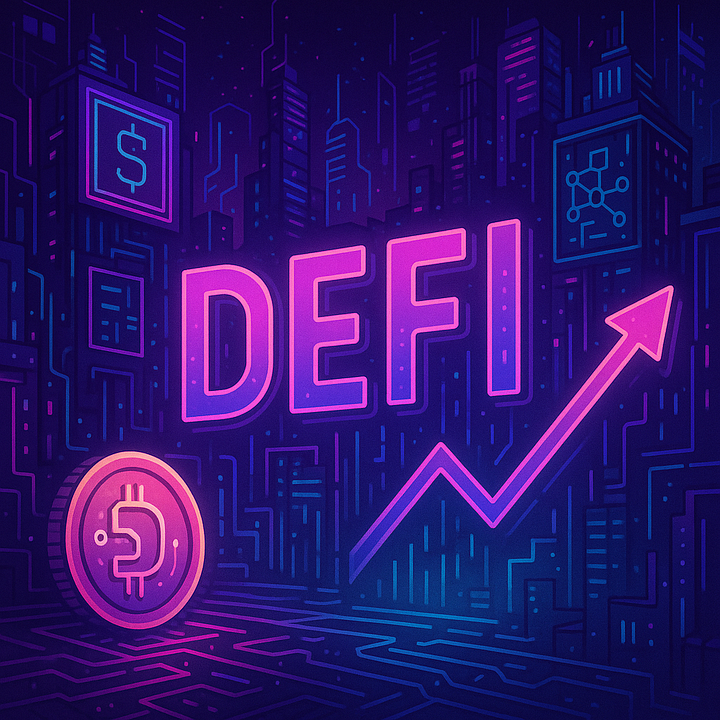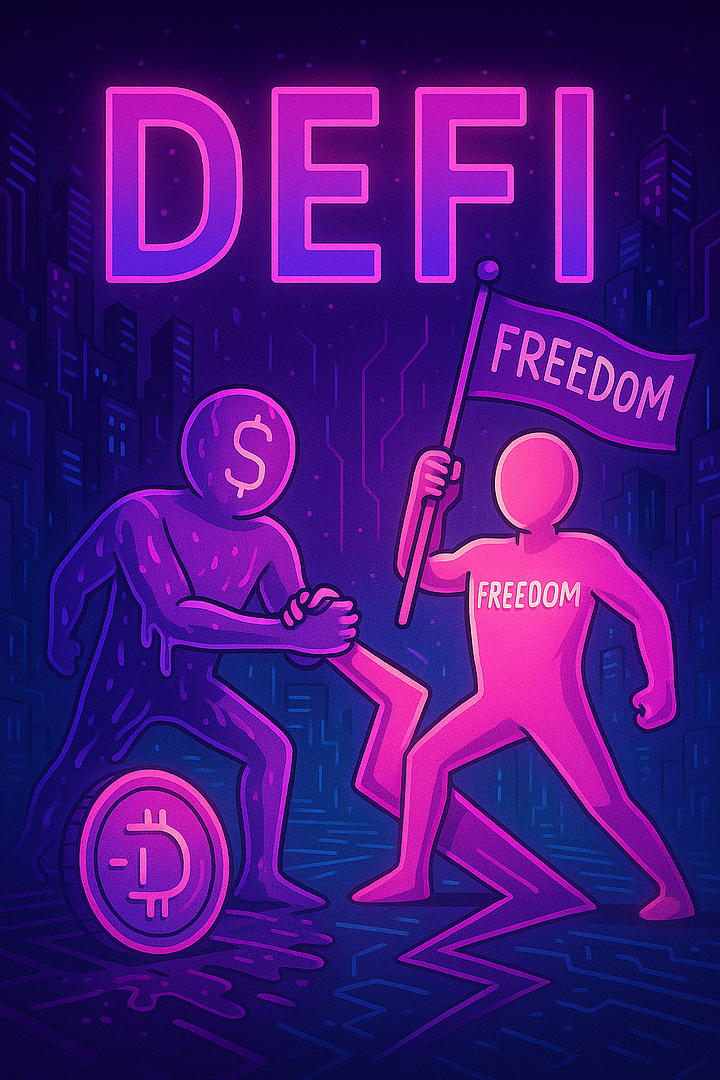Decentralized Finance (DeFi) was born from the oldest cryptocurrency protocol, Bitcoin, where users send peer-to-peer transactions in privately held wallets without banks or intermediaries. Sixteen years later, DeFi has expanded its offerings to products that were once exclusive to banks and institutions, placing financial opportunities and tools into the hands of the people.

During the 2008 crisis and beyond, few understood how the banking system worked. In addition to the obvious bailouts, lawmakers in Washington quietly pushed through legislation that lined their pockets without repercussions, because the public was generally uninformed as to what was going on.
We want to help prevent that from happening again by arming you with knowledge.
We are building a repository of information to support our advocacy efforts in Washington, and we’re building it to serve as a resource to keep you up to date on the most critical updates and best practices that will help you protect your rights and your money.
It’s time to get schooled and learn the hottest things DeFi, including how it can help you gain financial sovereignty and grow your wealth.
It is no secret that US regulators turtle behind crypto’s exponential growth, even when the future is inevitable. One might have hoped that the United States, as a global leader in finance and technology, would have pioneered the industry and helped develop thoughtful frameworks to protect users and open the door to the next generation of finance — but alas…
Instead of conversation and foresight, the government acted punitively, penalizing those who attempted to comply, stifling innovation and driving what could have been the biggest windfall in a generation overseas, along with all the opportunities, tax dollars, and jobs.
One of the most egregious moves came from the IRS, which created a DeFi Broker Rule that would have put DeFi platforms under a legacy tax law that made compliance and innovation impossible. Thankfully, Congress struck down the rule in April 2025, giving us the sign our industry had long hoped for — the tides might be turning.
This is a victory worth celebrating, but we will need many more to succeed. The IRS and other regulators may strike again, and there are no guarantees in this or future administrations.

Some may be asking themselves, “Isn’t this the same game all over again?” Yes and no.
Money has taken many forms through the ages, and the battle for who controls it and has the most is nothing new. But traditional finance has gone unchallenged for far too long, leading to crisis after crisis where they bail themselves out and debank whomever they choose.
DeFi offers a new landscape where everyone can participate and be their own master. This is critical for marginalized communities, especially the adult industry, which has been discriminated against for generations.
Real experiments are happening with AAVE and HAI
One of the most heated battlegrounds comes from regulators applying legacy solutions to new innovations. One of DeFi’s best offerings is that anyone can participate without financial discrimination. Know Your Customer (KYC) laws, originally for the banking system, create the exact barriers and problems that DeFi hopes to transcend.
There is some merit in KYC helping with security and oversight, but it’s only half of the story. KYC also paves the way for discrimination, data breaches, and surveillance.
In a recent scandal, bad actors bribed people at Coinbase to steal user data, then used this information to trick users and extort money from them. Governments and institutions have proven fallible and are repeatedly hacked, harming users through the very regulations designed to protect them.
Privacy is not the opposite of safety, and can, in many cases, be critical to have it. The DeFi ecosystem already has technology that can help trace wallet activity and flag suspicious transactions without collecting names. With new technologies such as Zero-Knowledge Proofs (ZKP), we can layer in authentication while protecting user privacy.
To thrive, innovation requires regulatory frameworks that evolve alongside it. By building for the future, we can create crypto-native security solutions that are safer and more effective.
After years of climbing uphill both ways, Congress has finally acknowledged that crypto is here to stay and brought it to legislation.
These aren’t perfect, but it’s a strong start. By advocating, we can help ensure that it keeps going in the right direction.
One of the most unfair advantages in modern finance is that there is asymmetrical knowledge where those in the know benefit first and most. By default, the blockchain is public. In the same breath that regulators want to strip individuals of privacy, they obfuscate the regulatory process and withhold key information.
DeFi offers accountability through transparency with public, real-time information available for anyone. It is immutable, permanent, and always on record — delivering a level of automatic oversight that is seldom achieved through traditional auditing.
We’re excited, and we hope that’s clear. That said, it’s important to remember that like all things involving money, DeFi attracts scammers, and exercising caution is wise.
Always keep in mind that DeFi is written and managed by humans. Protocols are only as safe as their creators, and even when everyone involved has the best intentions, mistakes happen. Since the rise of ChatGPT, scams and phishing are more prolific and sophisticated than ever. Some might argue that TradFi is safer, but all things related to money have the same problems.
DeFi presents users with a unique opportunity to hold the keys to their kingdom, and with complete freedom comes both great opportunity and risk.
To help protect you, we created a guide with security tips to help protect your money.
(Spoiler: many apply to money of any kind. We’re looking at you TradFi.)
By default, DeFi is a sandbox, where anyone can build. Thanks to the millions of crypto enthusiasts, DeFi offers us insight into how the financial ecosystem works.